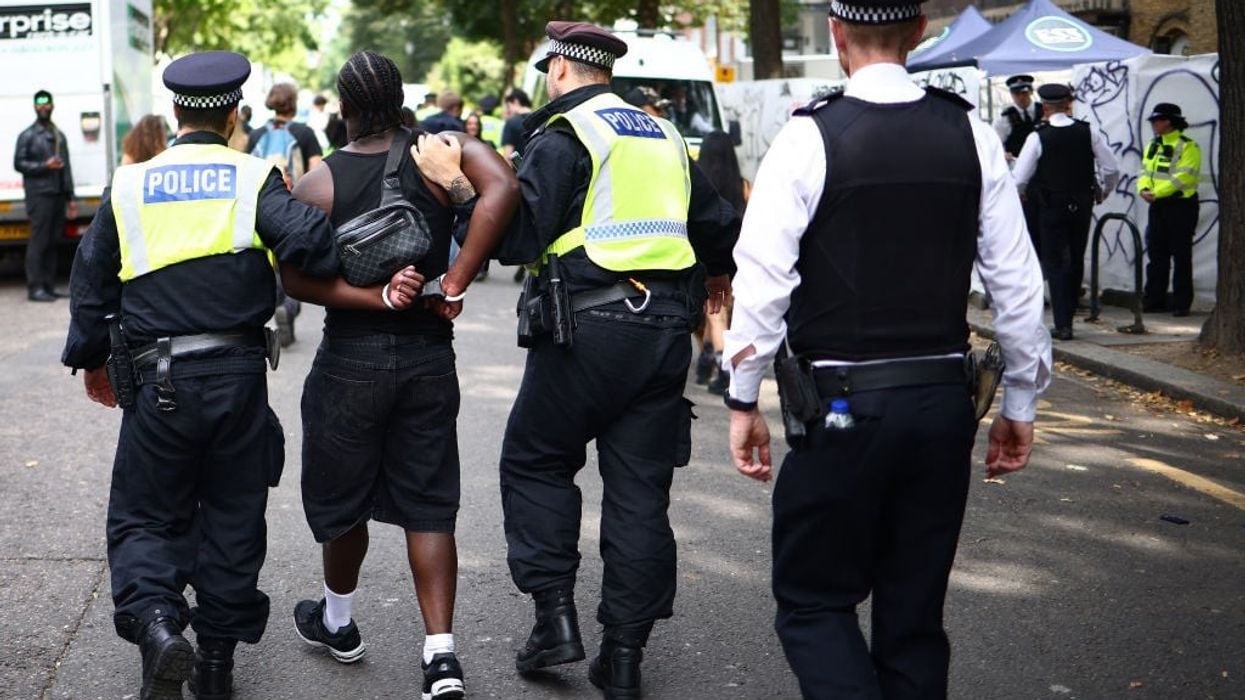EIGHT people were stabbed and police arrested hundreds during last weekend's Notting Hill Carnival, one of the world's largest street festivals held annually in west London.
Updating on their policing operation late Monday (26), the Metropolitan Police said five people were stabbed on the final day of the world-renowned three-day celebration of British Afro-Caribbean identity.
That followed three knifings on Sunday (25), with three of the victims of the violence over the long weekend left in a life-threatening condition, the force said.
Officers made at least 230 arrests on Monday, including 49 for possession of an offensive weapon, on top of scores of arrests the previous day.
Three firearms were seized and 35 officers were also injured during the event, which attracts around a million people annually over the August bank holiday weekend.
The policing numbers were similar to last year, when there were 10 stabbings and around 300 arrests.
Revellers attend Notting Hill Carnival on August 26, 2024 in London, UK. (Photo by Alishia Abodunde/Getty Images)Hundreds of thousands of revellers packed the streets of west London for the carnival, filling the Notting Hill neighbourhood and surrounding districts with colour, costumes, dancing and music.
Around 7,000 officers were on duty for the event, which has repeatedly been marred by violence, in particular knife crime, but is enjoyed by the vast majority incident-free.
However, the Met's deputy assistant commissioner Ade Adelekan said he was "tired of saying the same words every year" after a woman attending the carnival with her child was among those stabbed.
"We only very narrowly avoided a fatality," he added, urging carnival-goers to report any crimes they witness.
Carnival celebrates London's diversity
In 1959, Trinidadian activist Claudia Jones organised a Caribbean carnival in St Pancras Town Hall in London in response to race riots, planting the seeds for Notting Hill Carnival, one of the world's largest street parties.
Revellers on Monday, the second day of this year's carnival, said Jones' message of unity had never been more important, after racist riots in late July were sparked by false information online about the suspected killer of three young girls in a knife attack in Southport, northwest England.
"Everyone comes together (at the carnival). You see people from different countries just flocking together on the streets," said Jocelyn Kuyaziwma, 28.
"I feel like (the carnival) is a step in the right direction in terms of what I would like Britain to be on a daily basis," said Kuyaziwma, who lives in Wales, and came to London to be part of Mangrove Mas, one of the carnival's oldest masquerade bands.
Matthew Phillip, the Notting Hill carnival's chief executive, said the event was Britain's biggest celebration of inclusion - "of the things we have in common, rather than focusing on our differences".
The carnival traces its roots to the hundreds of thousands of migrants from the Caribbean, known as the "Windrush" generation, who came to Britain between 1948 and 1971 to help rebuild the country following World War Two.
Their arrival was accompanied by racial tensions and the unfair treatment of black people, with riots breaking out in 1958, including in the London district of Notting Hill, where many Caribbean migrants lived at the time.
"Notting Hill Carnival was born in response to racist riots," race equality think tank Runnymede Trust said. "These events, and the divisive rhetoric which fuelled them, feel painfully relevant today."
Jhen-I, a DJ at one of the carnival's sound systems, said London was one of the most diverse cities in the world.
"So it is all about celebrating each other (...) and always respecting each other," he said.
Over the years, the indoor event organised by Jones has developed into the vibrant celebration it is today of multiculturalism and of how generations of migrants and their descendents have contributed to British society.
"It is important for us to celebrate our culture and where we have come from and for everyone to be together," said 41-year-old Ramzan Bacchus, who was wearing a Guyana bandana.
"It does not matter where you come from (...) everyone is here to celebrate, together, as one people," he added.
Monday's celebrations featured trucks draped in colourful materials, carrying bands and sound systems playing soca and reggae songs, surrounded by people in bright festival costumes.
Many brought flags of Caribbean nations.
(Agencies)





